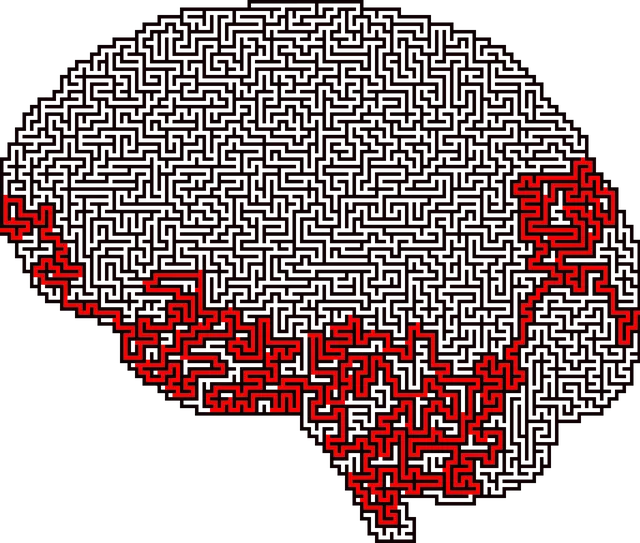Kaiser Permanente Mental Health Initiative in Littleton offers a comprehensive program transforming mental healthcare through advanced practices, focusing on self-esteem improvement, risk assessment training, and social skills training for patients. Their multi-disciplinary approach integrates evidence-based strategies like mindfulness workshops and mental wellness journaling to enhance diagnosis accuracy. By combining these innovative techniques with tailored exercise and self-esteem programs, Kaiser Permanente Mental Health Littleton aims for personalized treatment plans, improved outcomes, reduced stigma, and a holistic future of mental healthcare.
In an effort to enhance mental health care, the Kaiser Permanente Mental Health Initiative in Littleton has emerged as a pioneering model. This article delves into the challenges of diagnosing mental illness and explores innovative strategies aimed at improving accuracy. We examine the impact of these efforts on patient outcomes and future directions for more effective mental health treatment, with a specific focus on the Kaiser Permanente approach in Littleton.
- Understanding the Kaiser Permanente Mental Health Initiative in Littleton
- Challenges in Diagnosing Mental Illness: A Comprehensive Overview
- Innovative Strategies to Enhance Diagnosis Accuracy
- The Impact and Future Directions for Improved Mental Health Care
Understanding the Kaiser Permanente Mental Health Initiative in Littleton

The Kaiser Permanente Mental Health Initiative in Littleton is a notable program focused on enhancing mental health care services within their community. This initiative takes a comprehensive approach to improve diagnosis accuracy and overall patient outcomes for individuals struggling with mental illness. By implementing advanced practices, they aim to revolutionize the way mental health is managed in primary care settings.
One of the key aspects is prioritizing self-esteem improvement through therapeutic interventions tailored to each patient’s needs. Additionally, the program emphasizes the importance of risk assessment tools for mental health professionals, ensuring they have the necessary skills to identify and mitigate potential risks effectively. Social skills training is another component that empowers patients to navigate social interactions with more confidence, fostering a supportive environment for their mental well-being.
Challenges in Diagnosing Mental Illness: A Comprehensive Overview

Diagnosing mental illness can be a complex and challenging task, even for seasoned professionals. The human mind is intricate, and emotional regulation, a cornerstone of mental wellness, can often manifest in diverse ways. Symptoms vary widely across different disorders, making it difficult to pinpoint an accurate diagnosis. This complexity is exacerbated by the fact that many individuals struggle with co-occurring conditions, further complicating the assessment process.
At Kaiser Permanente Mental Health Littleton, we recognize these challenges and are committed to improving diagnostic accuracy. We offer comprehensive evaluations, integrating advanced assessments and evidence-based practices. Our approach involves a multi-disciplinary team who collaborate to consider all aspects of a patient’s life, including their history, current symptoms, and environmental factors. By incorporating techniques like mindfulness and stress management workshops, we aim to support not just diagnosis but also overall burnout prevention and emotional regulation.
Innovative Strategies to Enhance Diagnosis Accuracy

Innovative strategies are transforming mental illness diagnosis accuracy at organizations like Kaiser Permanente mental health Littleton. One promising approach involves integrating mental wellness journaling as a tool for patients to track symptoms and emotions, providing valuable insights that aid professionals in making more precise diagnoses. This method empowers individuals to actively participate in their care while offering clinicians a complementary perspective beyond traditional assessment methods.
Furthermore, exercise guidance and self-esteem improvement programs designed specifically for mental health contexts are gaining traction. These initiatives recognize the profound impact of physical activity and positive self-image on overall mental wellness. By incorporating such programs into diagnostic settings, healthcare providers can gain a more holistic view of patients’ well-being, leading to more accurate and effective treatment plans tailored to individual needs.
The Impact and Future Directions for Improved Mental Health Care

The journey towards enhancing mental illness diagnosis accuracy is a multifaceted effort, and organizations like Kaiser Permanente Mental Health Littleton are at the forefront of this initiative. By integrating advanced assessment tools and evidence-based practices, healthcare professionals aim to ensure that every individual receives an accurate and timely diagnosis, paving the way for personalized treatment plans. This approach not only improves patient outcomes but also reduces the stigma associated with mental health issues.
Looking ahead, the future of mental health care lies in holistic strategies that combine professional interventions with self-care practices and increased Mental Health Awareness. Encouraging individuals to prioritize Stress Management through various techniques can be a game-changer. Through ongoing research, community engagement, and educational initiatives, we can create a more supportive environment where people feel empowered to seek help and manage their mental well-being effectively.
The Kaiser Permanente Mental Health Initiative in Littleton exemplifies a significant effort to enhance mental illness diagnosis accuracy. By addressing challenges through innovative strategies, this initiative underscores the potential for improved mental health care across the nation. Integrating advanced diagnostic tools and fostering multidisciplinary collaboration, as seen in Littleton, could lead to more effective treatment plans and better patient outcomes. Moving forward, continued research, education, and system-level changes are crucial to ensuring that individuals with mental illness receive accurate diagnoses and appropriate support, ultimately revolutionizing mental health care for all.






